“There is a certain impatience in youth which is really nothing more than their energy eager to be put to use.”
The late President Ramon Magsaysay could have been channeling today’s youth when he shared these words six decades ago.
Young people are now looking at the challenges of the times in global terms. They are a force, going where their energies take them.
This has brought the brightest among them to a one-of-a-kind learning and development program for selected next generation social change leaders working in Asia.
From Jun. 14-25, some 33 outstanding young leaders from all over Asia gathered to learn from 11 Ramon Magsaysay Awardees in the NEXTGEN LEADERSHIP PROGRAM organized by the Ramon Magsaysay Transformative Leadership Institute.
The Laureate mentors were Mechai Viravaidya from Thailand, Saur Marlina Manurung from Indonesia, Youk Chhang from Cambodia, Sonam Wangchuk from India, Kim Jong-ki from South Korea, Yoshiaki Ishizawa from Japan, Mahabir Pun from Nepal, Chung To from China, and Conchita Carpio Morales, Antonio Oposa Jr. and Ryan Cayabyab from the Philippines.
They interacted with the participants: students, young entrepreneurs, and Awardee protégés from the Philippines, Thailand, Singapore, Indonesia, Cambodia, Bangladesh, India, and Hong Kong.
The program premise is that “Each one of us, ordinary as we are, are challenged to moments of greatness of spirit, when we choose to be empathetic, to listen deeply, and to connect and act together for a better Asia.”
Courage, Empathy, Passion, Audacity, Persistence. Collaboration, Inclusiveness, Empowerment, and Purpose in Action were the sentiments that echoed throughout the 10-day virtual sessions.
The participants went through expansive learning sessions with the Awardees who shared their inspiring life stories and advocacy work, driven by greatness of spirit and transformative leadership. Also contributing their nuggets of wisdom were Trustees of the Ramon Magsaysay Award Foundation and industry experts.
It was heartwarming to see the participants deeply engaged in the sessions. From the questions and personal insights that they shared, it was clear that the Awardees left an indelible mark on them, and that they are ready to pursue similar advocacies.
The Ikigai concept of purpose in action resonated with the participants. They are well on their way to blossoming into leaders in the bigger world, working towards social change and development work in Asia.
Likewise sharing their advocacies that mirrored those of the Laureates were benefactors Ayala Foundation, PHINMA Education, Seaoil Foundation, Smart Communications, and Magsaysay Awardee Ambassador Howard Dee.
The engagement of the NextGen participants does not end with the 10-day sessions.
They will regroup to pursue a batch project that will encapsulate the learnings they imbibed, which will be implemented within the cycle of the program, even as various Foundation events take place throughout the year.
Another eagerly anticipated event is Bravo Asia, a celebration of Asian culture which will showcase Magsaysay Laureates who have excelled in music, dance, film, and literature. This will unfold from Aug. 30 to 31 this year, and will culminate with the announcement of the 2021 Ramon Magsaysay Award winners.
AWARDEE QUOTES & PROFILES
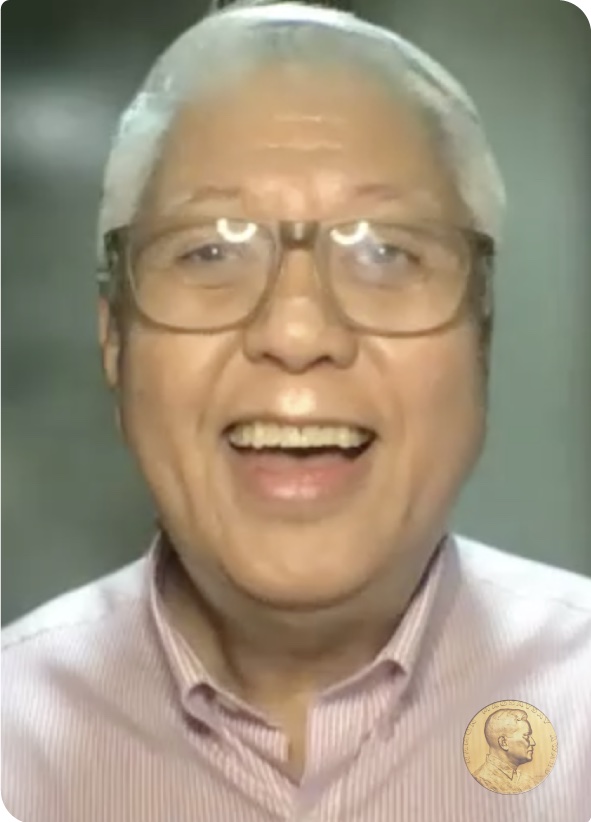
In a country known for its rich musical culture and blessed with a surfeit of musical talent, to stand out as singular and indispensable is truly outstanding. Such a musical leader is Raymundo “Ryan” Cayabyab. He is virtually omnipresent in the Philippine music industry today. For over four decades, his contributions as a composer, arranger, music director, conductor, performer, and educator have been huge.
Ryan is driven by a passion to mentor, educate, and contribute to the flourishing of Filipino musical talent. He runs a music studio with his wife, and has conducted free workshops for thousands of
students all across the country. He is a moving force in the PhilPop Musicfest Foundation and the Elements Music Camp, major initiatives dedicated to music training, promoting Filipino music abroad, and fostering Filipino cultural identity through music.
Ryan says, “The next generation should be better than us for our country to move forward. For this to happen we must teach them everything we know at every possible instance.
• “Music is not a universal language. That’s a myth from the west. If you’re not educated in a certain type of music, you can’t understand it. You have to understand other cultures which are different. That’s what makes the world interesting.”
• “When you’re young, you can make as many mistakes as you can.”
• “Passion is not enough; you also need knowledge and training.”
• “The right time is when you’re ready for it. You’re equipped and you have the ammunition.”
• “We’re into HyperLocalism. Not to think global, not imitating, but to look within. We want to not sound like everybody else. Write in your own language, not just English or Tagalog; learn to love your own culture, to generate more creative songs. Express your own feelings and stories. When the regional gets into the mainstream. We will be on the way to being global.”
• “Do what you love to do; what makes you happy, but develop the skills.”
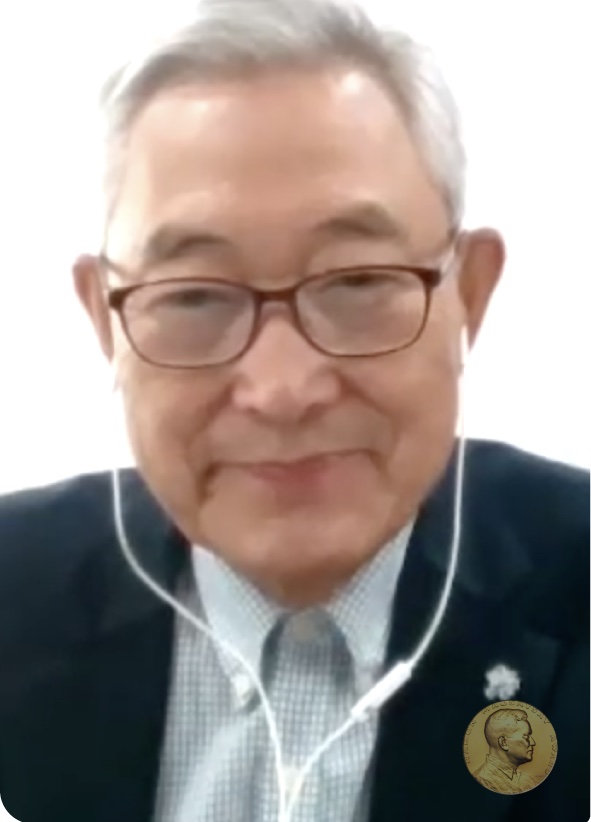
Kim Jong-ki was at the height of his career when his sixteen-year-old son committed suicide. He would learn later that it was bullying in school that drove him to end his life. Heartbroken, He knew he had to do something to channel his grief and to prevent similar youth tragedies.
Jong-ki established the Foundation for Preventing Youth Violence (FPYV). Over the next twenty-four years, Jong-ki and his staff painstakingly developed a holistic program of detection, protection, and management in youth violence. Under his committed leadership, FPYV carried out wide-ranging anti-bullying campaigns, with the capacity to dispatch staff to respond to urgent cases, and lobbied for needed government policy and legislation. A law on the prevention and handling
of school violence was finally enacted in 2004.
The impact of Jong-ki and FPYV on Korean society has been profound, establishing a nationwide presence and creating collective action on a social problem hitherto neglected. A 2018 survey showed that since FPYV started its campaign in 1995, the incidence of school violence has dropped from 20% to 3%.
• “The problem is difficult to solve alone, we must work together. The solution should be
• based on empathy and recovery of relationships.”
• “To alleviate pain, always stress empathy; help others who are in the same pain. Never
• give up, there is always hope; there is so much more in life.”
• How you adjusted to help during the pandemic?
• “Analyze, monitor online, come up with programs that actually tackle the problem.”
• How to stop bullying at our level?”
DINA PATERNO (Founding Trustee and President, The Beacon School), Reactor:
• “Empathy is feeling with each other.
• “Empathy is entering the chaos of another.”
• “In helping, recognize that it’s a wide range of situations (age groups, cultures, etc.).
• Everything starts with us. Importance of listening, caring. Just reaching out is a big
thing.”
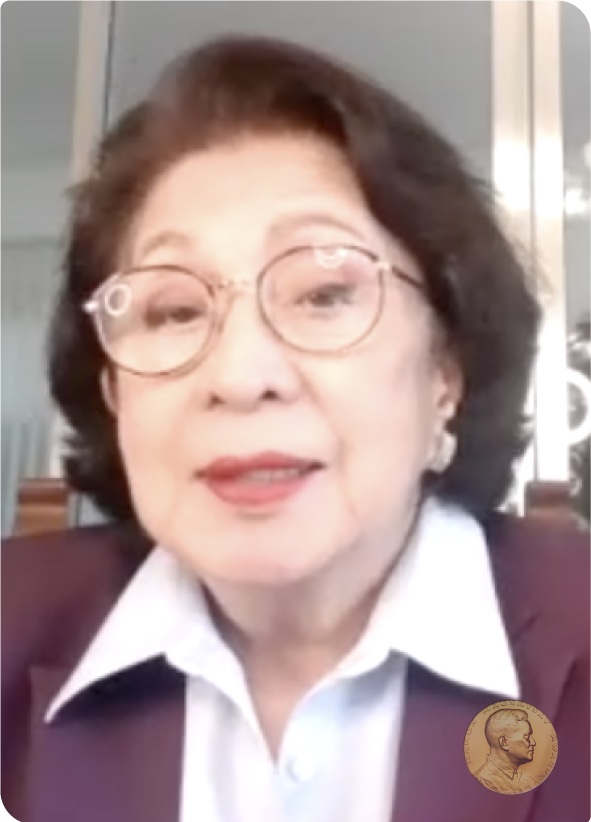
Morales was a regional trial court judge, a justice in the Court of Appeals, and finally a Justice of the Supreme Court. In 2011, she was appointed as the Ombudsman, where she professionalized and upgraded the OMB’s capabilities. She filed cases against high-ranking officials, including a former president, a former vice-president, incumbent senators, congressmen, and governors.
She recognized that corruption is not just a matter of persons but systems, taking the initiative in creating an integrity management-based program that mobilizes government agencies and the public, and addresses the lack of strategy and direction in the overall anti-corruption campaign.
Conchita Carpio Morales received the 2016 Ramon Magsaysay Award for her moral courage and commitment to justice in taking head-on one of the most intractable problems in the Philippines; promoting by her example of incorruptibility, diligence, vision and leadership, the highest ethical standards in public service.
• “Truth is important because without it there is no justice.”
• “Truth can easily be masked online…”
• “Truth is timely and timeless.”
• “There is no peace without justice, no justice without truth, no truth unless someone tells it.”
• “Hope lies in the heart of the citizen.”
• “Truth starts from the home. There should be a collective effort for parents to inculcate the virtue of honesty; values.”
• “Truth-seeking is a lifelong saga.”
• “Never succumb to pressure; be beyond the reach of influencers.”
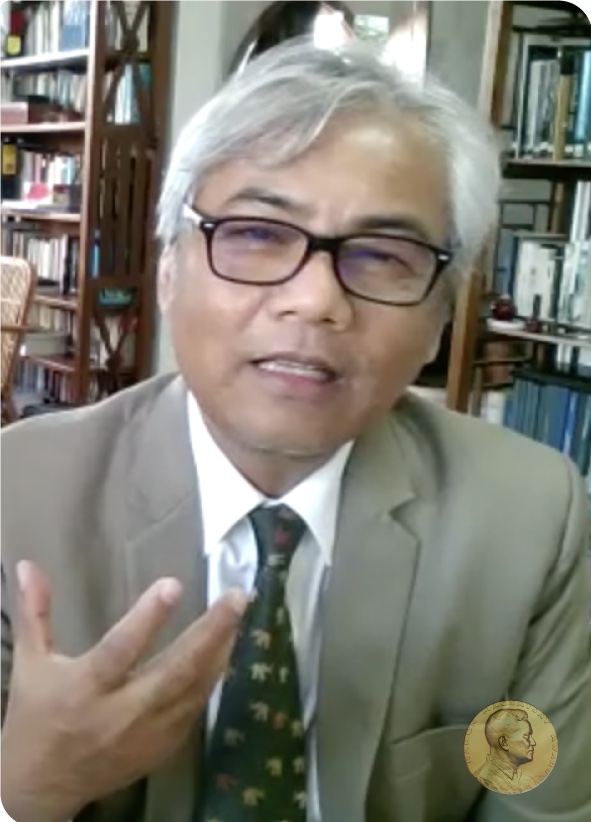
A survivor of the Cambodian genocide, Youk suffered the trauma of the death of his father and five of his siblings. At seventeen, he was able to escape and became a refugee to the United States. He found his life-long mission in 1995, when the Yale University’s Cambodian Genocide Project engaged him to head its Documentation Center of Cambodia, charged with investigating and documenting Khmer Rouge atrocities. He has devoted his life to the monumental task of documenting and memorializing the genocide to serve the aims of judicial redress, national reconciliation, and collective healing.
Youk Chhang received the 2018 Ramon Magsaysay Award for his great, unstinting labor in preserving the memory of the Cambodian genocide,
and his leadership and vision in transforming the memory of horror into a process of attaining and preserving justice in his nation and the world.
• “It is best to focus on a single truth and master it.”
• “No need for technical gadgets to document truth, just a piece of paper and a pencil.”
• “There’s a risk in chasing truth; you have to expect the risks.”
• “The biggest cost of truth-telling is sacrificing family and friends.”
• “Justice and truth cannot be compromised, even if it involves family.”
• “You cannot stop telling the truth, you can’t hide it; it will come out sooner or later.”
RANDY DAVID (Trustee, Ramon Magsaysay Award Foundation), Moderator:
• “Truth-telling is now the duty of every citizen. Tell it, promote it; it is our responsibility.”
• “The is the era of Truth Decay.”
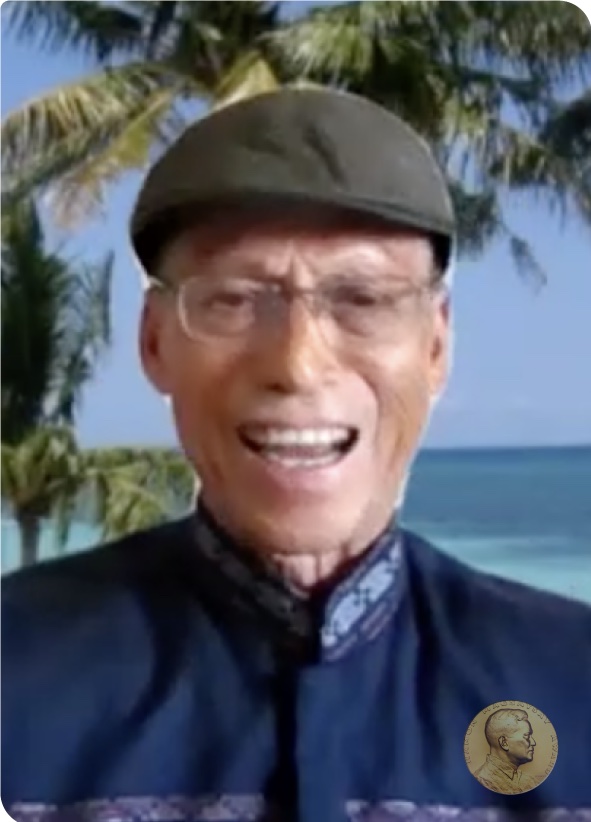
A lawyer and environmental activist who advocates for strict enforcement of fishing and logging laws, environmental litigation, education on sustainable living, and advising local governments on crafting environment-preserving legislation.
He made his mark with a class action he won in which 43 minors asked government to cancel timber licenses on the grounds that rampant logging violated their constitutional rights to a healthy environment. He has been recognized globally for this inter-generational legislation now known as the “Oposa Doctrine.
His latest initiative is a movement that urges everyone to write good stories to counter the negativity that is prevalent in the world.
Oposa received the Ramon Magsaysay in 2009 for his pathbreaking and passionate crusade to engage Filipinos in acts of enlightened citizenship that maximize the power of law to protect and nurture the environment for themselves, their children, and generations still to come.
- We can’t change the world but we can change the storyline. Good stories are powerful.”
- “A single act of kindness is greater than all the wisdom of the world.”
- “The power of the people is more powerful than people in power.”
- “This is Restorative Visitourism and Voluntourism.”
- “I’ve changed the word environment to “Land, Air and Water. The LAW of life. That’s what makes life possible.”
- “I don’t receive funds. It won’t be fun. What I’m doing is crazy; risky.”
- “CPR Economy – Care, Protect, Restore the sources of life.”
- “A good story is looking from Wrong to Strong.”
- “A picture is worth a thousand words. A story is worth a thousand pictures.”
- “There is nothing more powerful than a good story.”
ANNA OPOSA (Chief Mermaid and Director, Save Philippine Seas), Reactor:
- “Do more of experiential programs. Learn and go to communities to impart learnings.”
- “Everyone matters. Everything is valid. Young and old can work together.”
- “When you try to educate you can’t be self-righteous. You don’t force it, you just nudge
- them. Scaring them by saying they will die is not inspiring.”
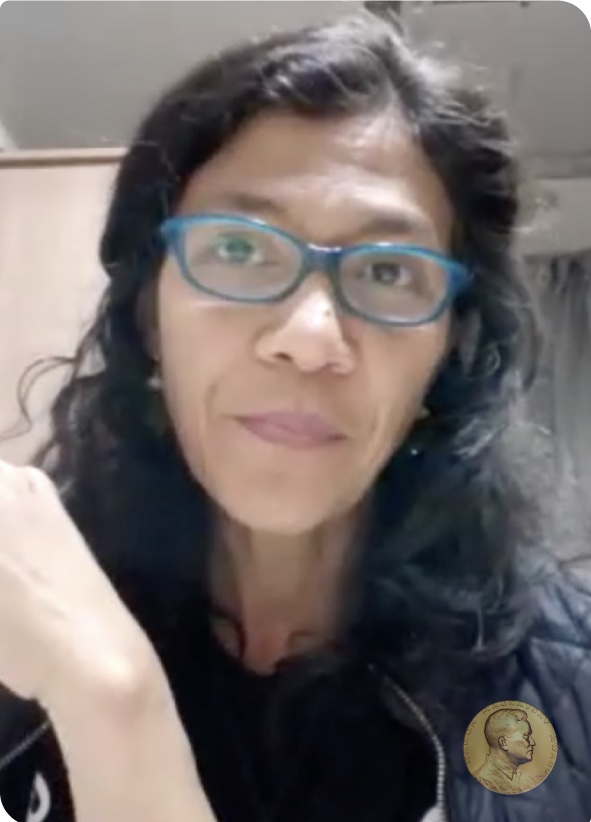
In 1999, Butet, a young Indonesian anthropologist formed SOKOLA with four NGO colleagues, focusing on the education of forest people. Their major program is called Sokola Rimba, or “Jungle School” which focuses on basic literacy and relevant life skills. Armed with only a small blackboard, some chalk, a few books and pencils, Manurung overcame the challenges of harsh life in the jungle, and resistance from the elders, to teach groups of children out in the open. Now, a cadre of young, newly-literate Orang Rimba are able to serve their people as tutors and community leaders.
Saur Marlina Manurung received the 2014 Ramon Magsaysay Award for her ennobling passion to protect and improve the lives of Indonesia’s forest
people, and her energizing leadership of volunteers in SOKOLA’s customized education program that is sensitive to the lifeways of indigenous communities and the development challenges they face.
On education for people of the jungle:
- “Learning from the communities is important. Learn their ways, discard colonial perspectives, understand their native knowledge.”
- “Culture should be strong. Strengthen identity and local knowledge. Use contextual education based on local customs and challenges. Use their mother tongue.”
- “Advocate to defend human rights. Help them defend their rights.”
- “Create curriculum within the community but to intervene sometimes. Example – forests aren’t forever. Need additional knowledge to cope with modernization, globalization.”
- “No culture is stagnant… Integration and isolation can mix.”
NORMAN KING (Ayta teacher, Porac Ayta Ancestral Domain Federation, Inc.), Reactor:
- “Educate our generation. When the time comes that we are the leaders, we can make changes. Change should come from inside, not outside.”
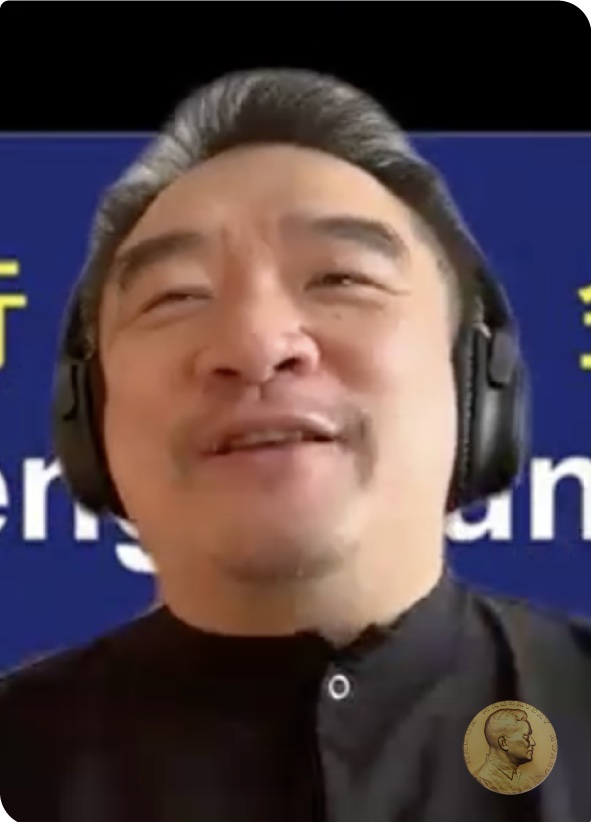
Chung To was a successful US-educated banker in Hong Kong who left his job to devote himself full-time to China’s AIDS crisis. In 1988, he created the Chi Heng Foundation to arm gay men with the means of protecting themselves. Moved by the plight of children orphaned by AIDS, he launched the AIDS Orphans Project in 2002. Their grim lives and futures stirred him to launch the project, saying, “I figured that the world could do with one less banker,” he says. “But these children, they cannot wait.”
Chung To received the 2007 Ramon Magsaysay Award for Emergent Leadership for his proactive and compassionate response to AIDS in China and to the needs of its most vulnerable victims.
- “Educate to develop social responsibility.”
- “We shouldn’t give up easily even if we don’t reach our targets. When I face difficulties, I would think of my original mission.”
- “I want to see more collaboration and inclusiveness.”
- Whatever you start may be meaningful; make a difference. “
ANNA MELOTO WILK (Co-founder, Human Nature), Reactor:
CHUNG TO
Why he started his advocacy of helping orphans of AIDS victims:
- “There’s a moment of truth. I went to this village and saw the children’s eyes – there as hopelessness. It touches the deepest part of your heart. I decided to quit my job and do this full time; no pay. You know it when it comes.”
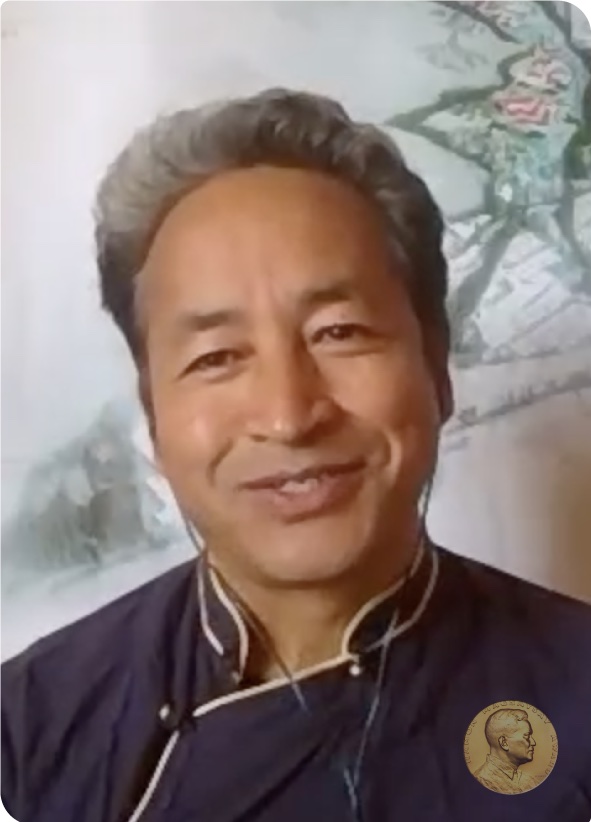
In 1988, Wangchuk started coaching underperforming Ladakhi students who were subjected to a broken education system. In 1994, with Wangchuk in the lead, “Operation New Hope” (ONH) was launched to expand and consolidate the educational reform program. To date ONH has dramatically increased the success rate of students in matriculation exams from just 5% in 1996 to 75% by 2015.
He started an innovative campaign to collect ice and make artificial glaciers, ice stuppas, during winter. Because of its shape, the stuppas melt slowly slowly during summer and provide Ladakh with the water they need. Ladakhis are pioneers in dealing with climate change.
Sonam Wangchuk received the Ramon Magsaysay Award in 2018 for his uniquely systematic, collaborative and community-driven reform of learning systems in remote northern India, thus improving the life opportunities of Ladakhi youth, and his constructive engagement of local society to harness science and culture creatively for economic progress.
- “Let’s not leave to go to Mars. Let’s use our natural resources…. Live simply.”
- “During winter we collect ice and make artificial glaciers – ice stuppas. Because of its shape, it melts slowly during summer and provides us with the water we need. We in Ladakh are pioneers in dealing with climate change”
- “We are faced with the challenge to educate. It shouldn’t just be ritual but solutions-based, with life-changing principles. Apply science. Make more sense of what we spend a quarter of our lives on.”
- “It’s not just about what you need, but what needs you.”
- “With curiosity you will learn even without teachers.”
- “More than education you must have empathy.”
- “Demand education from officials. Change the mindset of voters.”
- “Initiative leads to action; action leads to experience; experience leads to confidence.”
- “Sad that education wants us to compete with others. Cooperation is what you need for progress. I love competition when it is with myself; that’s how I can be better.”
- “Good changemakers are patient. Start small, equip yourself, grow strong. Infiltrate the system. Collaborate with others.”
- “The soft strength of people can be the hardest for people in power.”
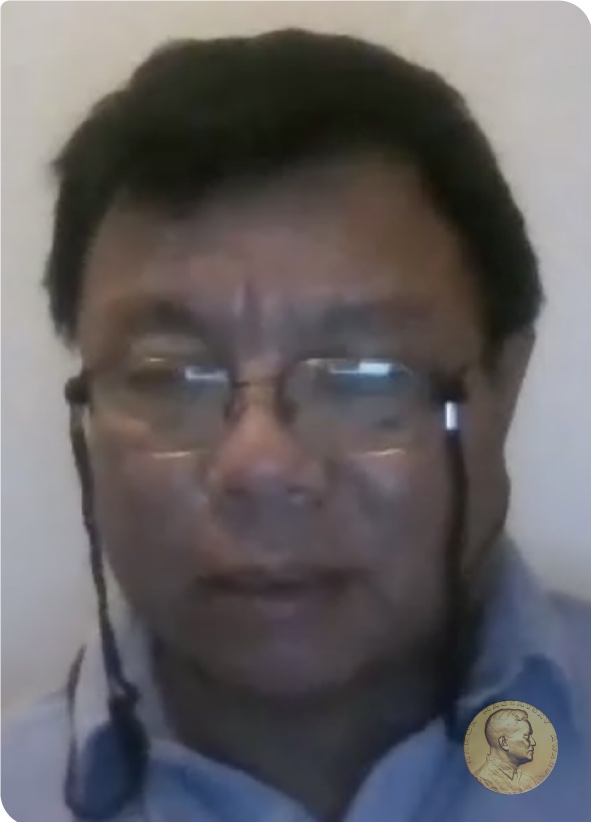
Pun is a Nepali scientist, teacher, and social entrepreneur who has been involved in rural community development projects covering many fields such as education, health, nature conservation, income generation, and tourism. He is widely known for his extensive work in applying wireless technologies to connect and develop remote areas of the Himalayas to the internet. He is inspiring many youths to return their own country and serve it for its development.
Mahabir Pun received the Ramon Magsaysay Award for Community Leadership in 2007 for his innovative application of wireless computer technology in Nepal, bringing progress to remote mountain areas by connecting his village to the global village.
- “Research and innovation are very important. Poor countries are poor because they have not given topmost priority to science, technology and innovation to develop their economy.”
- “Innovation is the growth engine. That is the lesson I learned all my life.”
- “Nurturing the most innovative people and commercializing their ideas is the answer for making Nepal an economically developed country.”
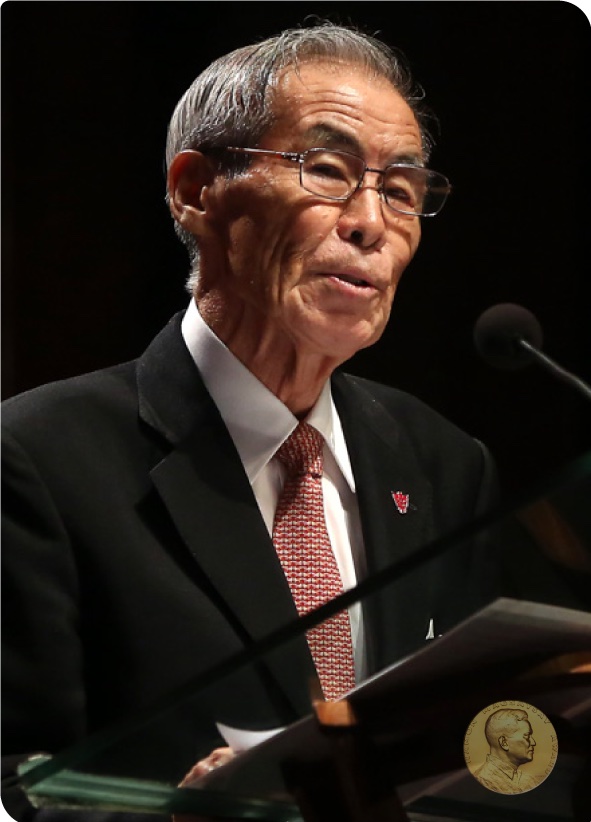
Yoshiaki Ishizawa devoted fifty years of his life to help assure that Angkor Wat survives and remains a living monument. Starting in 1980, Ishizawa worked side by side with Cambodians, networked with international experts and organizations, campaigned in the Japanese media to generate awareness and support, and devised programs for Angkor’s protection and conservation.
He has painstakingly trained Cambodians and supported them for studies in Japan; 18 Cambodian scholars have earned conservation-related degrees in Sophia University. Ishizawa believes that Cambodians need to discover and create their own specific cultural preservation strategies and methods, different from those of foreign origins.
Ishizawa received the 2017 Ramon Magsaysay Award for his selfless, steadfast service to the Cambodian people, his inspiring leadership in empowering them to be proud stewards of their heritage, and his wisdom in reminding us all that cultural monuments like the Angkor Wat are shared treasures whose preservation is thus, also our shared global responsibility.
- “It is important to care for people’s welfare.”
- “Now is the time to really care for people in this pandemic.”
JO BAUTISTA (Founder, Send2Give), Reactor:
On finding one’s purpose in life:
- “There are three boxes: I haven’t made it; I have made it; I’m getting there.”
- “Three tips: 1) Reach to a community. 2) Have the right mindset. It’s okay if your enterprise is not working as fast as you want; remove that pressure. 3) Believe.”
- “If you believe, your work will amount to something good.”
- “You don’t have to do everything yourself. Inspire others to help. Collaborate with those who share your vision.”
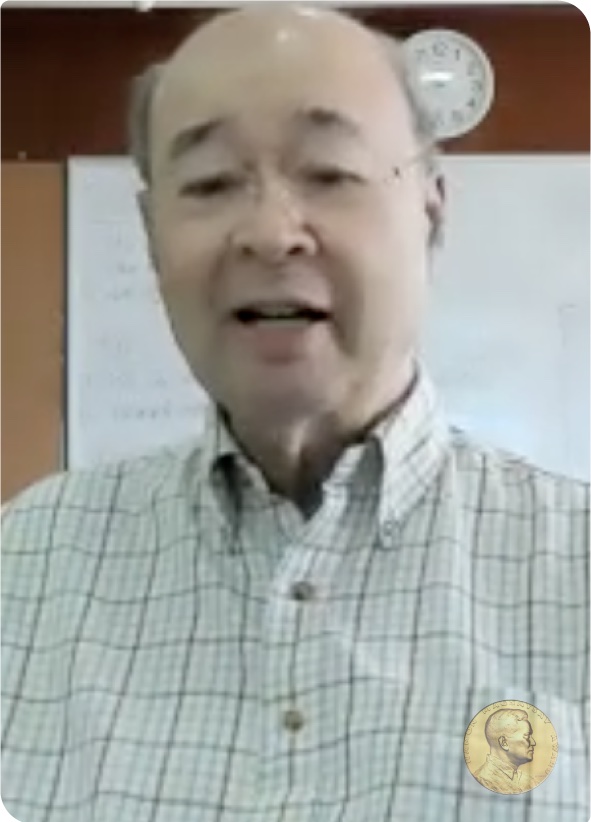
He founded the Mechai Bamboo School in Buriram, Thailand, an innovative secondary school which is also engaged in community development. This rural boarding school was established to become a lifelong learning center for all and to act as a hub for social and economic advancement in surrounding villages. Among the advocacies he imparts to his students is that corporate social responsibility should be an individual responsibility for everyone, even before he goes to work. And it should be learned early in life.
Mechai Viravaidya received the Ramon Magsaysay Award for Public Service in 1994 for mounting creative public campaigns in Thailand to promote family planning; and to espouse education and rural development.
- “Corporate Social Responsibility is not very successful. What we need is Individual Social Responsibility. ISR.
- There is also Customer Social Responsibility. And Children Social Responsibility, start early.”
- “Good social enterprise: solicit funds for project with the beneficiaries paying in kind – planting trees, doing community service, etc.”
- “Stop the old system of education which is not preparing children for tomorrow. Involve them in developing plans. Bring in the private sector to improve teaching. Bring in new ideas.”
- “While staying at home, do gardening. Make it a business; help others.”




